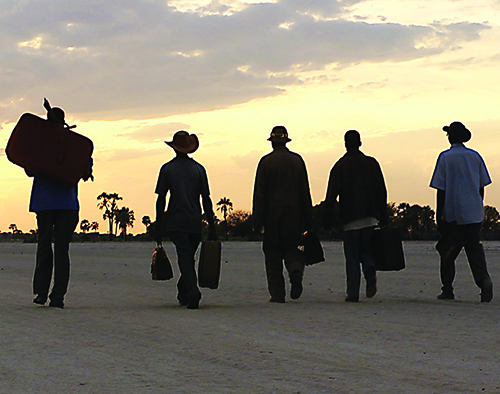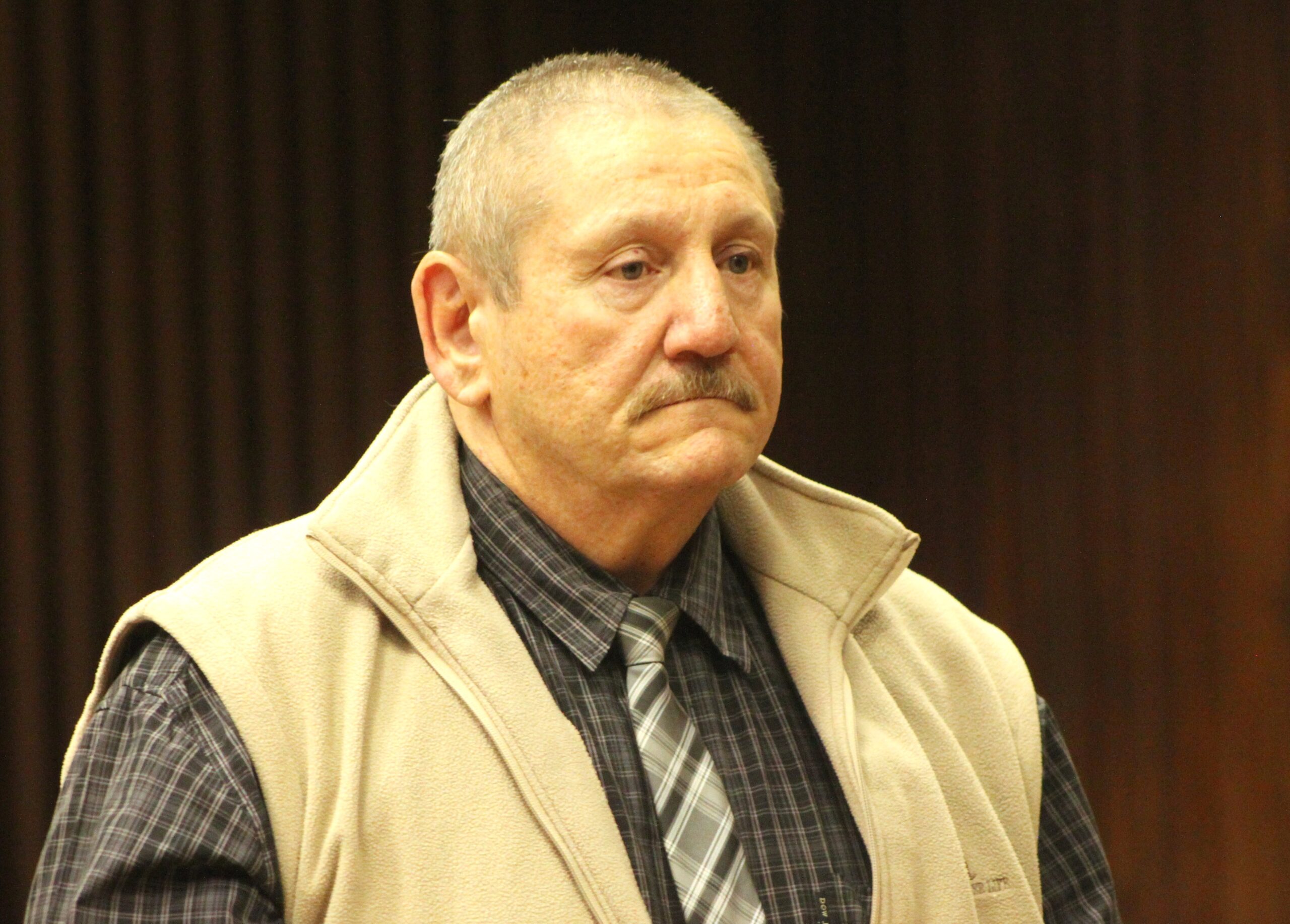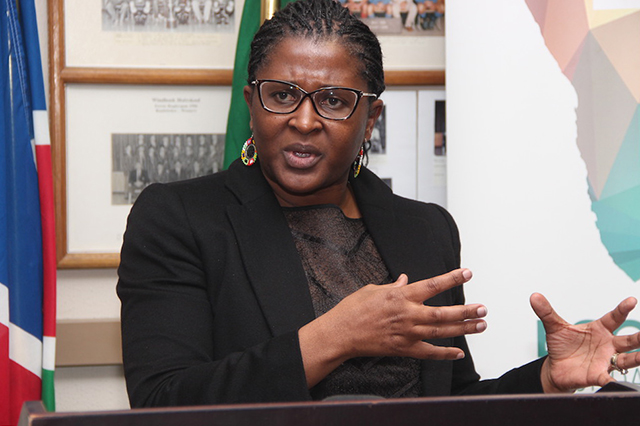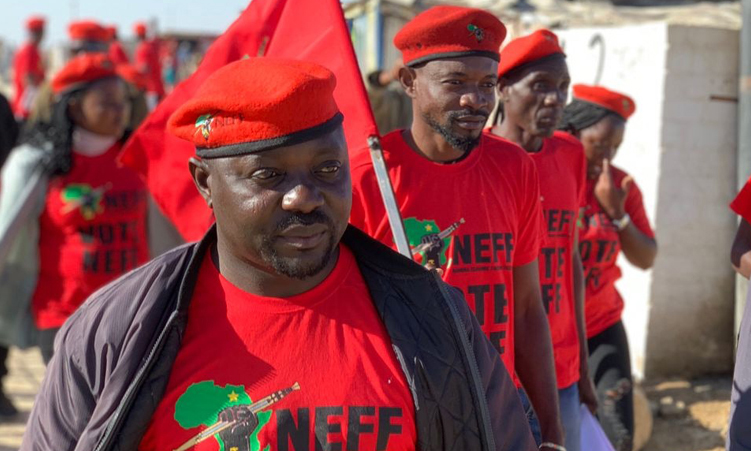THE biggest film event of the year took place at the National Theatre this past Sunday and attracted an eager audience replete with the struggle stalwarts and war veterans whose story it tells.
The historic documentary traces the beginnings of Swapo and the armed liberation struggle as a group of young Namibian contract workers unite and have their desire for liberation stoked in the political hotbed that was South Africa during Apartheid’s and the ANC’s early years. Using extensive archive material found in Namibia, South Africa and Germany as well as recently declassified South African Military documents, the film covers many key experiences in the formation of Namibia’s modern history up to 1966 and provides important and thought-provoking context to the history that framed the struggle, looking backward to the winds of change that swept across Africa in the 50s and 60s and forward to the events that finally brought about Namibia’s independence.
The opening shot is one that sets the tone for the first part of the documentary. Crisp, archival footage offers a glimpse into the horrors and humiliation suffered by our forebears while the evocative score fills the atmosphere with a sort of triumphant pain that lingers in the mind long after watching it. Pictures of smug colonial officers are spliced between those of skeletal men in chains, lynchings and hungry babies clinging to their frightened mother’s bust.
President Hifikepunye Pohamba was the keynote speaker at the launch of celebrated director Richard Pakleppa’s latest documentary film and features in the documentary as one of the interviewees. Alongside other prominent Namibian leaders and activists such as Andimba Toivo ya Toivo, former president Sam Nujoma, Mzee Kaukungwa, Helao Shityuwete, John Nankudhu, Kambo Shixungileni, Ben Amathila, Gerson Veii and many others.
The documentary looks into the central figures who started the labour protests against the system of “Okaholo”, which then escalated into a guerilla war against the South African government, to whom then South West Africa was a mandated territory. It also features stories of those who sacrificed much in support of then fledgling liberation movement. The stories of brave women like Lahya Iyambo, Priskila Tuhadeleni, Justina Amwaalwa and others also tell of how they and their families provided crucial support for the freedom fighters.
This lends an added gravitas to the piece, as we see the human side of a struggle told by those who were there to witness it. The conviction of their words and the pain of those memories come across vividly and soon one is wrapped up in the interviewees’ retellings of moments clouded by “dust and fear”.
The narrator’s guiding monologue speaks from in a subjective and personal manner through the use or language styled to edify and connect the audience to the narrative and its characters in a most intrinsic way. Pakleepa explains why: “It was purposefully written in that manner to express ownership of the narrative and not tell the story in a detached, objective tone, as these are our national heroes. They got the ball of independence rolling, so it seemed only proper to address them as ‘tatekuru’ or ‘meme’ and as our leaders.”
The fascinating interviews are supported by a poetic visual narration and an original sound track created by Papa Shikongeni and Philip Miller. As the film progresses and the audience settles into the context of the time, we are treated to extremely rare footage of Chief Hosea Kutako speaking on film as he appeals to the United Nations that “we have suffered enough, we want our freedom”.
These calls for freedom were echoed by Murumba Kerina who was a student in New York at the time and appeared in front of the UN General assembly to lobby Namibia’s calls for self determination. The documentation of the testimonies from these living legends gives incredible insight into happenings of those fateful days when the forced relocation from the old location took place and initiated the armed struggle. The events that follow saw Swapo’s leadership rub shoulders with other prominent revolutionaries of the time as they set up training camps throughout Africa for Namibian exiles.
From there the neatly edited documentary changes its tone and it covers an increasingly militant stage in our history. It then follows the brave men of the ‘G1’ who set off back to Namibia from then Tanganyika, carrying with them six weapons, a few thousand rounds of ammunition and the hopes of their people.
Emotive re-enactments help you follow the members of ‘G1’ as they march over 4000 kilometres back to their homeland where they found shelter in the homes of communities where they campaigned and recruited able-bodied and patriotic hearts to their cause.
With few weapons and training by nations friendly to their cause, the group sowed the seeds of freedom throughout the region. Some were detained, suffered torture, solitary confinement and paid the ultimate sacrifice in South African courts and jails. Those who attended the launch spoke highly of the film and praised the director and stakeholders for their stellar work preserving these histories for future generations. “It is a remarkable film and the best documentary on the subject that I have yet seen. I congratulate all those involved and hope that this opens up the way for more similar projects that tell the stories of all the other players from other tribes and parts of Namibia that contributed to the struggle for independence,” said Mburumba Kerina who also features in the documentary.
These sentiments are not lost on Pakleppa who said “I am overwhelmed by the positive response to ‘Paths to Freedom’ and heed the call for more of these projects that immortalise first hand accounts of our shared history. There’s talk around more productions of this nature but nothing official as yet”.
A public screening will be held at the University of Namibia today, Friday, 1 August at 18h00 in the Peter Katjavivi Hall and will feature a question and answer session with Pakleppa. Copies of the DVD will be available for sale at N$150 and half the profits from all sales will go to the Robben Island Veterans Trust Fund. Make sure not to miss ‘Paths to Freedom’ when it will be aired on NBC on 26 August and there will also be a screening taking place at the FNCC on the 2 September for those who missed it. DVDs are available through Leading Edge Management Consultants on 061 402799 or at info@leadingedge.com.na.
As part of the sponsorship provided for ‘Paths to Freedom’, 1300 copies of the DVD (with facilitator’s guides for teaching and dialogue creation purposes) will be distributed for free to schools, museums, multi-purpose centres and educational institutions nationwide.
“’Paths to Freedom’ was an emotional tour de force. Sometimes it happens that a filmmaker manages to enchant me so much with the story they tell and how they tell it, I forget that I am a filmmaker myself. Those films are really powerful and tend to stand the test of time. ‘Paths to Freedom’ is one such film. The director Richard and his team deserve all the kudos they inevitably will receive as the film begins its journey through our land and the world,” local filmmaker Tim Huebschle said at the launch.
Stay informed with The Namibian – your source for credible journalism. Get in-depth reporting and opinions for
only N$85 a month. Invest in journalism, invest in democracy –
Subscribe Now!






